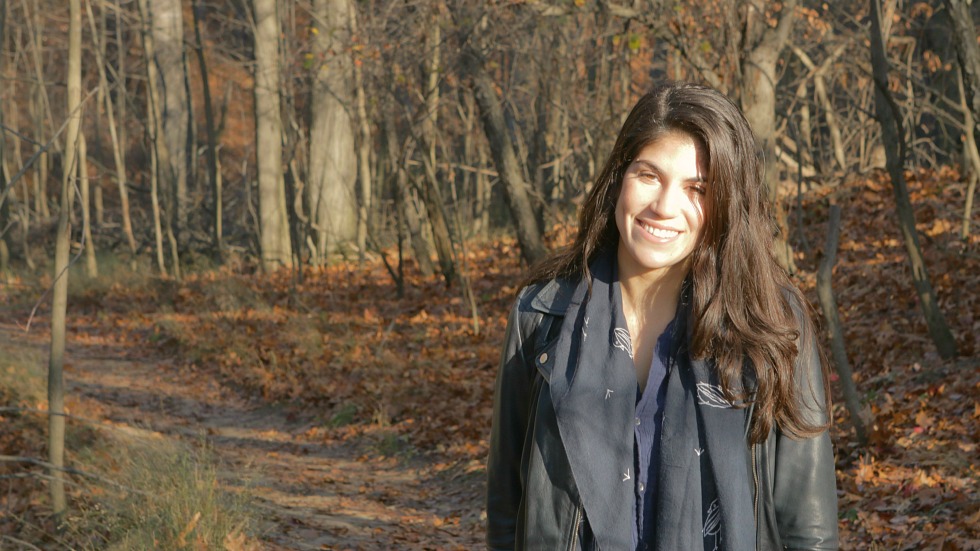New “rapid response” research service combines McMaster expertise with community needs

Danielle Vitali (pictured), a graduate student in McMaster’s Medical Science program, was part of a team of students who volunteered with the Research Shop– a new rapid research service– to provide the Hamilton Burlington Trails Council with a report that helped inform stakeholders and support the Council’s funding applications.
BY Judi Pattison and Erica Balch
November 21, 2016
Alexandra Brodka, program manager at the Hamilton Burlington Trail Council, needed research to inform stakeholders and support the Council’s funding applications– research the Council couldn’t undertake on its own.
Faced with limited time and resources, she turned to McMaster’s Research Shop, a new “rapid response” research service that taps into the skills of McMaster graduate students to provide public, non-profit and community organizations with the research assistance they need.
“Many local not-for-profit groups are led by people who have day jobs,” says Brodka. “These organizations don’t have staff who can spend several hours a week researching and creating reports or proposals to support the vision and goals of the group.”
The Research Shop aims to fill that void.
Working with the Research Shop, public and community-based organizations can request a Rapid Research Review – a short, plain language report containing academic literature reviews, key interviews, and a survey of existing practices– completed within six to eight weeks.
Under the guidance of Alise deBie, PhD candidate and the Shop’s research coordinator, teams of graduate students complete the research and then write a report. The reports may be used to support program planning, donor drives, funding applications – whatever the organization has identified as a gap.
The process not only provides community groups with the information they need, it also gives McMaster students an opportunity to apply their research skills to real-world problems and to better understand the their community.
“Working with local agencies allows students to see change in their communities and where their work is having an impact,” says Brodka. “They did a tremendous job for us.”
Danielle Vitali, a graduate student in the McMaster’s Medical Science program, was part of the team of students that worked with the Hamilton Burlington Trails Council. She says the opportunity to work with community organizations, along with the training she received as a Research Shop volunteer, provided her with a valuable learning experience.
“Working with the Research Shop has absolutely impacted the way I view working with community organizations,” says Vitali. “Learning about social justice, reciprocity, transparency and other topics covered in the training, specifically with respect to Hamilton’s local context, gave me the confidence to work with the community in a meaningful way to respond to their needs.”
Ailsa Fullwood, research facilitator in the Faculty of Social Sciences, developed the Research Shop model and provides leadership and oversight as the Chair of the Shop’s advisory group. She says the Research Shop can help McMaster to build relationships with community partners and meet the demand for McMaster’s research expertise.
“It’s a way for McMaster to be highly responsive to community research needs while offering our graduate students an opportunity to apply their expertise to real-world situations,” says Fullwood who adds that the Shop provides community partners with access to the University’s graduate community – a pool of skilled and well-trained talent.
“With some coordination and guidance for our student researchers, we believe we provide community partners with the research they’re looking for,” Fullwood says.
